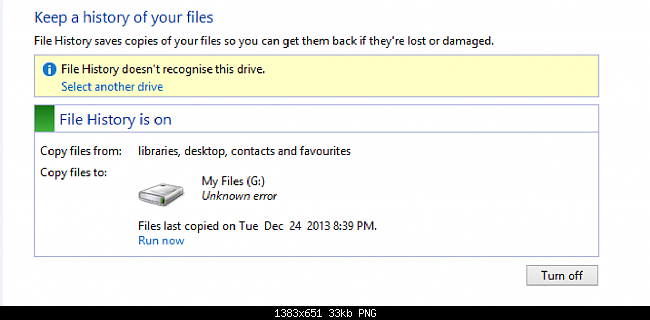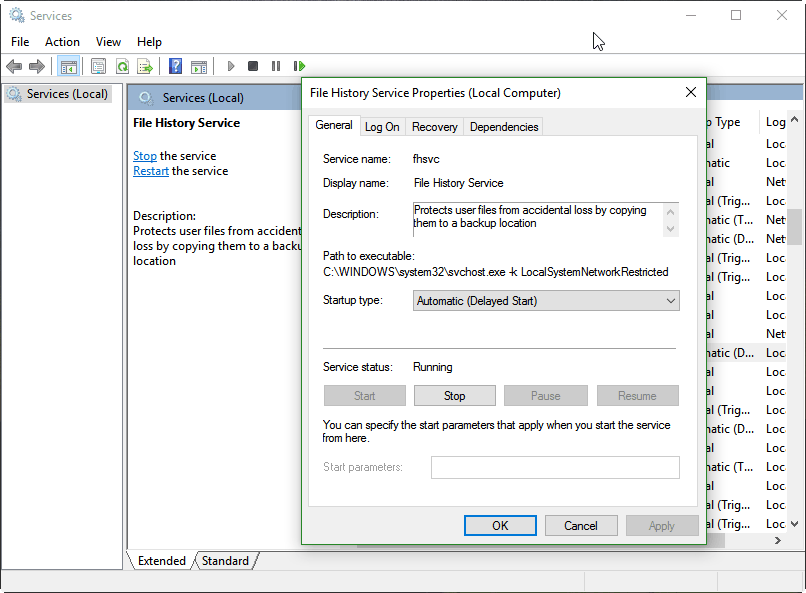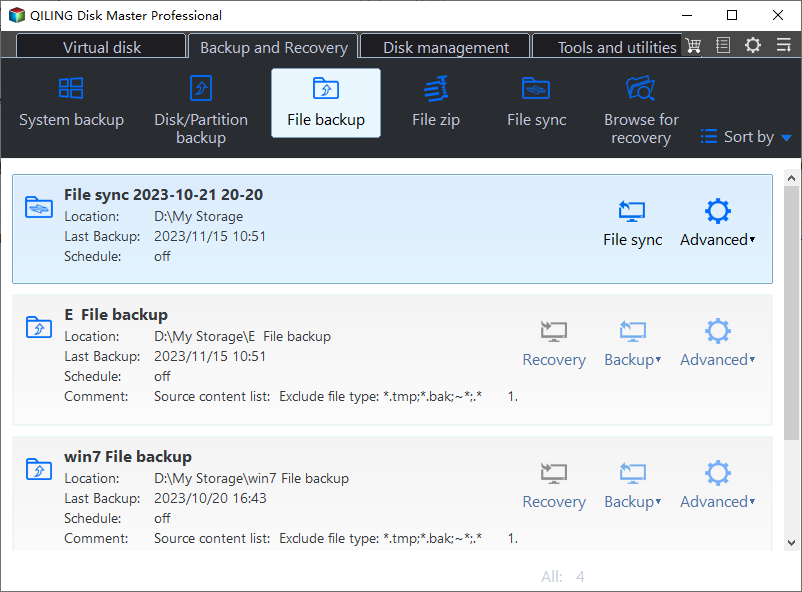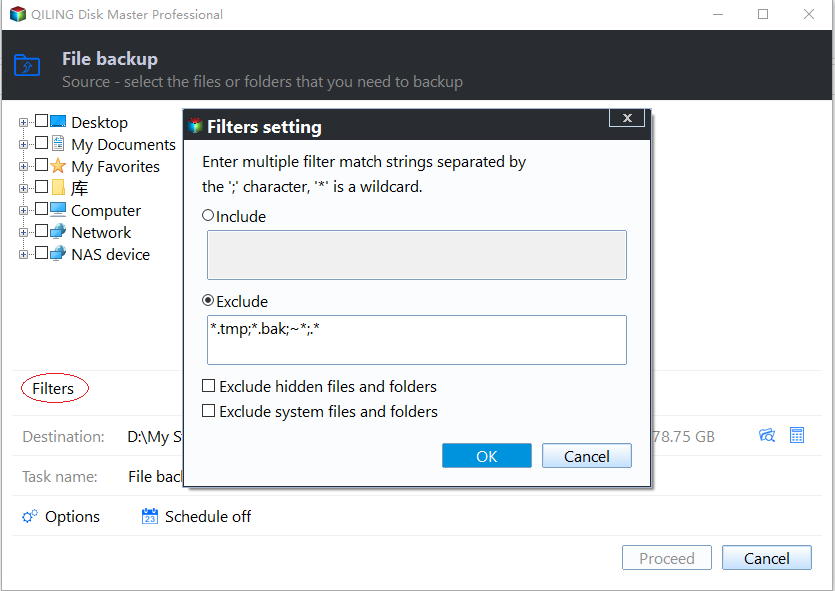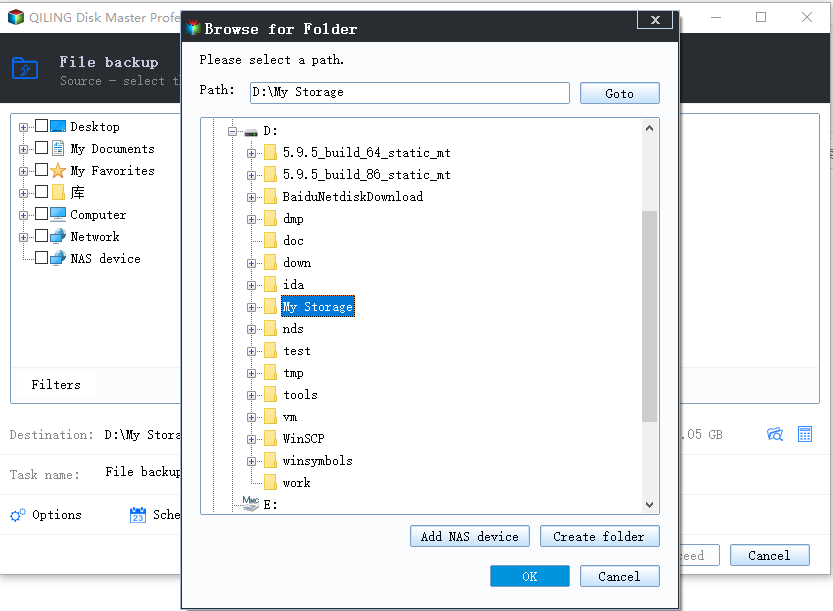Fix: File History Doesn't Recognize This Drive
Scenario: File History doesn't recognise this drive
When trying to backup files to another hard drive using File History, you may encounter an error where the system cannot find the file specified, or the drive is not recognized. Despite trying to reconnect the drive or choose another disk, File History still fails to function.
Why File History cannot recognize a drive
The File History drive not being recognized or disconnected may be due to various reasons, including incorrect drive selection, drive letter conflict, or issues with the drive's hardware or firmware. Additionally, it could be caused by a corrupted system file or a problem with the Windows Update service, which may prevent the File History drive from being recognized or connected properly.
- The File History Service cannot be triggered automatically.
- You may inadvertently turning off File History
- You may have selected a drive to save copies of your files, and then made some changes to it. I'm not sure what you're asking about.
How to fix File History doesn't recognize this drive.
For troubleshooting, you can try the following solutions or use a more robust automatic file backup tool.
Solution 1. Manually start the service
1. To open the Services window, you can either search for "Services" in your computer's search bar and open it, or press the Windows key + R on your keyboard, type "services.msc" in the Run dialog box, and press Enter. This will open the Services window, where you can view and manage the services running on your computer.
2. To enable the File History Service, start the service and set its Start type to "Automatic".
Solution 2. Reconnect the drive and turn on file history
1. In short, to show hidden files and folders in File Explorer, go to File Explorer Options and uncheck the box next to "Hide protected operating system files (Recommended)" to view all files, including hidden ones.
2. Delete the folder in the following path:
3. To reconnect the drive and ensure File History is turned on, go to File History in the Control Panel, click on "Select a drive" and choose the drive you want to use, then click "Save changes". Ensure the toggle switch under "Save backups" is turned to "On" to turn on File History.
Use File History alternative to auto backup files and folders
If the File History is not working, you can use free and robust backup software Qiling Disk Master Standard to backup your files and folders, which runs faster and gives you more options compared to File History.
This freeware is capable of handling most backup needs, and can also be used for folder synchronization or hard drive cloning.
How to backup files and folders with Qiling Disk Master:
1. Free download, install and launch this freeware.
2. Under Backup tab, choose File Backup.
3. To specify files or folders for the backup, click on "Files" or "Folders". In the select folder window, you can also set a filter to exclude certain files from the backup, which is a premium feature.
4. Specify a location path to receive the file image backup, which can be an internal/external drive, USB flash drive, network share, NAS, cloud, etc.
5. Click the "Schedule Backup" button to set a scheduled automatic backup if needed, or click "Proceed" to start the backup immediately. Alternatively, click the "Options" button for more customization options. Then click "Proceed" to initiate the backup process.
Tips:
- If you're worried about backup files piling up and filling your disk, you can enable Automatic Backup Cleanup in Backup Scheme to set a retention policy that automatically deletes old backups, available in the �rofessional edition.Professional edition.
- If you create a Qiling account, you can also backup files to Qiling Cloud, which offers 1TB free storage for 15 days after signing up.
Conclusion
After the backup completes, you can restore partial files or the entire content of the backup at any time. Once you've fixed the issue with file history not recognizing the drive, you may also want to consider using �ile Sync, another feature of Qiling Disk Master. Additionally, Qiling Disk Master allows you to create system image backups, make bootable media, and clone your hard drive to an SSD.File Sync, another feature of Qiling Disk Master. Additionally, Qiling Disk Master allows you to create system image backups, make bootable media, and clone your hard drive to an SSD.
Related Articles
- Windows 10 File History Backup Cannot Folders | Solved
Want to backup certain folders in File History but fail to add them? Ease your mind and find an effective solution and a free alternative to File History from this page. - Solved | Windows 10 File Copy/Transfer Very Slow (8 Methods)
Are you stuck in the situation that copy speed very slow in Windows 10, and the file transfer speed even drops to zero? If so, here are some solutions that have been proven to work. - How to Use Google Drive on Windows 11 (Install & Set Up)
Google Drive is a popular cloud storage solution. Learn how to install and set up Google Drive on your Windows 11 PC from this page. - Windows 11 Check for Compatibility - 2 Tools Included
How to complete Windows 11 check for compatibility? This article provides you with 2 tools to do this. One is Microsoft's own tool and the other is a free third-party tool. This third-party tool can also help you to protect your data.
